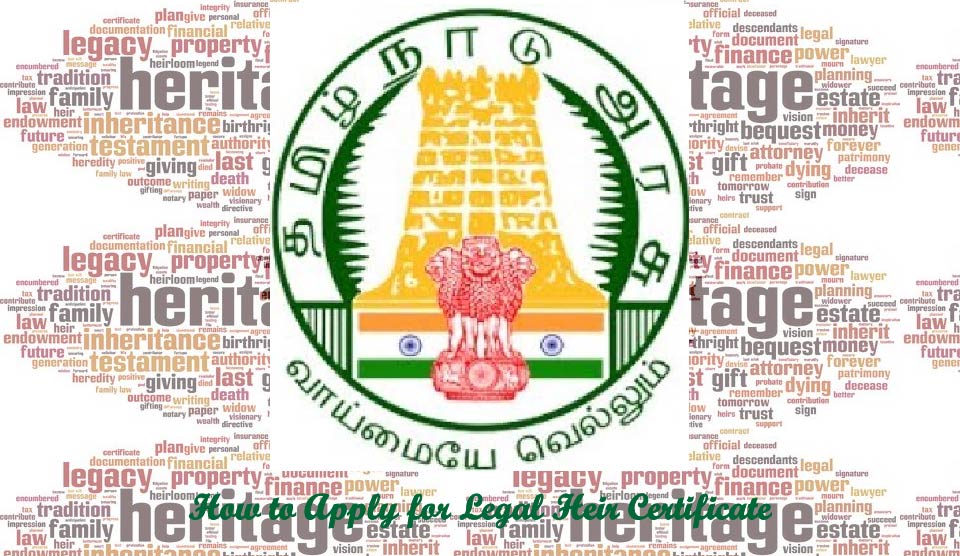Last Updated on 10 months by ChennaiRealties
Introduction:
Before finalizing a property deal, it is crucial to ensure the rightful ownership of the property by establishing the flow of title deeds. The Legal Heir Certificate plays a significant role in this process, confirming that the property has passed through successive owners and is now in the possession of the rightful heirs. This article discusses the importance of the Legal Heirship Certificate and provides guidelines and procedures for obtaining it in Tamil Nadu.
Importance of Legal Heirship Certificate:
The Legal Heirship Certificate is a vital document in determining the flow of title deeds. It serves as evidence of the transfer of properties and is necessary for validating property transfers. Without the participation of all legal heirs in executing the conveyance deed, the transfer of property may not be considered legally valid.
Guidelines for Obtaining a Legal Heir Certificate in Tamil Nadu:
The Tamil Nadu government has issued fresh guidelines (Sep 2022) for issuing the Legal Heir Certificate. These guidelines ensure uniformity and remove restrictions based on religion or gender. Here are the key points:
1. Online Application: Applicants can apply for the Legal Heir Certificate online through the e-sevai portal. The application should be submitted to the Tahsildar in whose jurisdiction the deceased person “ordinarily resided” before their death.
2. Fill in the application form for the Legal Heir Certificate, providing details such as your name, the deceased person’s name, address, phone number, Aadhaar card details, etc.
3. Verification Process: If the deceased person resided in the jurisdiction for less than six months, the Tahsildar will obtain a report from the Tahsildar in whose jurisdiction the deceased resided for more than a year. The Village Administrative Officer and the Revenue Inspector will scrutinize the application before referring it to the Tahsildar.
4. The Tehsildar or Revenue officer of your district will verify the application and ensure there are no discrepancies. If everything is in order, your request will be approved.
5. Certificate Issuance: The Tahsildar is required to issue the Legal Heir Certificate within a week of receiving the application. However, if false information is discovered, the officer who issued the certificate has the authority to cancel it.
Rights of Applicants and Appeals:
Rights of Applicants and Appeals:
The guidelines also outline the rights of applicants and provisions for appeals and revisions:
1. Married Persons: The father, mother, spouse, son(s), and daughter(s) can apply for the certificate if the deceased was married.
2. Unmarried Persons: In the case of the death of an unmarried person, the father, mother, brother(s), and sister(s) are eligible to apply. If no adult legal heir survives, a minor legal heir can apply through their guardian or the deceased person’s brother(s) or sister(s).
3. Adoption Confirmation: The certificate for adopted children will be issued only after confirming that the adoption was legal.
4. Appeals and Revisions: If necessary, an appeal can be filed with the Revenue Divisional Officer within one year of certificate issuance or application rejection. The District Revenue Officer can revise orders passed by the Revenue Divisional Officer within a year.
Conduct Field Inquiry
To sum up, Legal Heirshiptificate gives a fair idea of the Legal Heirs of the deceased. Yet, the existence of more claims for the property may still remain. A buyer may rely on a Legal Heirship Certificate, only if he is certain that there are no disputes or claimants to the estate of the deceased. He should conduct field inquiries to ensure no other claimants exist. The Village Administrative Officers (VAO) will be of much help in the inquiries. He can give the required papers and information to enable the buyer to arrive at a conclusion, of course for a ‘fee’.
Conclusion:
While obtaining a Legal Heir Certificate is essential, it is advisable for property buyers to conduct field inquiries also. Village Administrative Officers can assist in the inquiry process by providing necessary papers and information, albeit for a fee.
Disclaimer: The information contained in this article is for educational and informational purposes only. It is not intended to be legal or financial advice. Readers are advised to do their own independent research and consult with professionals before making any decisions based on the information in this article-Edit

Leave a Reply